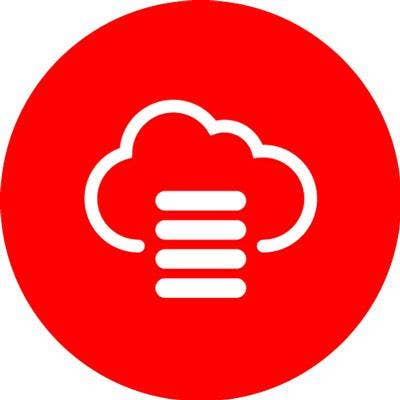Oracle Co-CEO Hurd On Tech Stocks, Trade Wars And The $10B Pentagon Cloud Contract
Hurd's Words
Oracle co-CEO Mark Hurd shared his thoughts Monday on the inscrutable valuation of tech stocks, consolidation in the Software-as-a-Service industry, Oracle's acquisition strategy, the benefits of cash repatriation, and the potential for a trade war brought on by the current U.S. administration.
Hurd fielded questions from journalists on those topics at a media event at Oracle's Redwood Shores, Calif. headquarters after Oracle announced it would make its premium Platinum-grade support service a standard offering for enterprises using its SaaS products.
He also discussed, though somewhat cryptically, what he hopes to see in the bidding process for the Pentagon's $10 billion cloud transformation project.
The award of that looming contract, part of the U.S. military's JEDI initiative, has ignited a firestorm of controversy in the industry, with Oracle and other tech giants, including IBM and Microsoft, voicing concerns that draft RFPs look tilted toward Amazon Web Services.

Premium-Level Support For All SaaS Customers
Most of our customers are going to cloud. This is now not a product offering really, it’s a service, and in many cases, it's a service of your most mission-critical systems.
What's important for somebody in the industry to do, and particularly someone in the industry who's leading in the mission-critical applications, moving to cloud, moving to services, is take a position, and that's what we decided to do.
It's not just people. It's going to be a lot of AI, a lot of predictive, proactive monitoring. We can actually do proactive alerts, proactive planning, in addition to the baseline services you would get, something like 7 by 24 support, being able to get response to a sev1 in something measured in minutes.
So we're upping our service level agreements for what you would think of the traditional services as well.

Will The New Support Offering Undercut Partners?
If you want something from a partner, get it from a partner. What a partner is good at is embedding talent into a customer. If you want that, great. What we're going to be really doing is driving more proactive insight into the very application code, the usage patterns, et cetera, that frankly nobody else can really do, at least do really well, other than us.
For the services we've got we're uniquely suited to provide those. But we want to work with partners.
Why Are Investors Suddenly Bearish On Tech Stocks?
My sense is some of these stocks you can't even begin to articulate why you have the valuation on them that you do. When I got out of business school, I was taught about things like revenue and margins and earnings and cash flow -- all these silly things that people don't seem to pay attention to anymore. So now you have, for some of these valuations, done on some future expectation of something, so it's really hard to measure many of these stocks.
I think when you say they've had some bit of a retreat, it’s a retreat from what? Some incredible high that's sort of hard to measure.
My sense is you haven't been able to figure out the stock market for years.

Trade War Concerns
Trade wars, to a guy like me, are bad. We want to have fair trade, we want to be competitive in the marketplace, we want to be able to go compete. I think we'll have to wait some time to see how the strategy of the U.S. administration plays out. So I'm not willing to say it’s a mistake yet. I don’t know what the endgame is.
There are certain things we can control, certain things we can't. We don’t control political elections; we don’t control currency movements back and forth. Best thing we can do is work on the fundamentals of our company.

U.S. Defense Department's Cloud Transformation Contract
We're obviously a big supplier to the federal government. And I think it would only make sense for the government to leverage its install base. Make sure they have a very fair, open competition. They take advantage of their existing suppliers. They have some of the biggest existing suppliers in the tech sector with billions and billions of R&D.
I'm sure they'll do it fairly on who can bring the government the furthest along, modernize and certainly at the same time save them money. The ROI in some of these situations in the federal government are just incredible just by simply consolidating and modernizing their existing install base.
I think we'll have to wait to see what the final RFP looks like. But we'll be very active in that process. There's been a lot of conjecture about what will be in it. A lot of guesswork. Let's let that process play out.

Oversees Cash Repatriation
I don’t think it will truly change our behavior much in terms of the end-result.
We would have cash that would sit in Europe that we couldn't bring back without paying tax a second time. We would have the interesting phenomena at the end of the quarter, we had like $71 billion in cash, and, just to give you some idea typically, we probably have $5 or $6 billion of that in the United States and the rest of that outside the United States.
We're buying NetSuite, we paid $9.3 billion. What would we have to do? We borrowed money. So people would go, 'this is the craziest thing I've ever heard, you've got $70 billion dollars and you're borrowing money.' Yeah. Because our money is in the wrong place. The wrong jurisdiction.
So now we have all that money back in the U.S. Would it stop us from doing what we felt was the right thing for the company? No. Does it make things considerably easier? You bet.

M&A Outlook
We're not interested in buying companies that were doing what was popular 10 years ago. We're interested in buying companies that bring something exciting to what's going to happen 10 years from now. So as a result, there's fewer of those companies than there are the former.
There has to be somebody at the other end to buy. I think our history has been the best predictor of our future. We'll be selective. We see something attractive, we'll certainly evaluate it.

Oracle Running Oracle Cloud
We've migrated the entire company to our cloud applications. We've gone live on ERP, live on financials, live on supply chain, we're now live on HCM. We actually use Eloqua, our marketing solution, our sales automation solution. We just implemented, which is pretty cool, for our digital sales people, that really come out of college, we just implemented Sales Cloud, new call center technology, contact center technology at all of our hubs, like in Austin, Santa Monica, Boston.
We're really now our own best use case.
We were the biggest E-Business Suite customer, or one of them, and we've now fully migrated over to the cloud.

Cloud Consolidation
There are not that many companies to consolidate in the cloud. If you look at the SaaS market, there were a year ago four companies greater than a billion dollars in revenue. Those were Salesforce, Workday, ServiceNow and NetSuite. We bought one of them [NetSuite]. So now there are three.
When you get past those three, it's really a long ways down till you get to four. When you talk about SaaS, there's just not that much to go quote-unquote acquire. There are certainly companies in the two- to three-hundred million-dollar range, but there's just not that many assets that are out there.
I really believe in the end there will be fewer companies that make it to the cloud than there ever were that competed in the traditional on-premise market, so consolidation among the big cloud companies, I think it will be few and far between.

SaaS Scale Out
I think what you will see is the scale out of many of the big [SaaS companies]. These things are going to turn into very large-scale utilities. Two reasons for that. You have to have the IP, and secondly, you've got to have the capital to be able to deploy the IP around the globe because all the security and privacy issues have made it very difficult to operate without lots of different deployments.